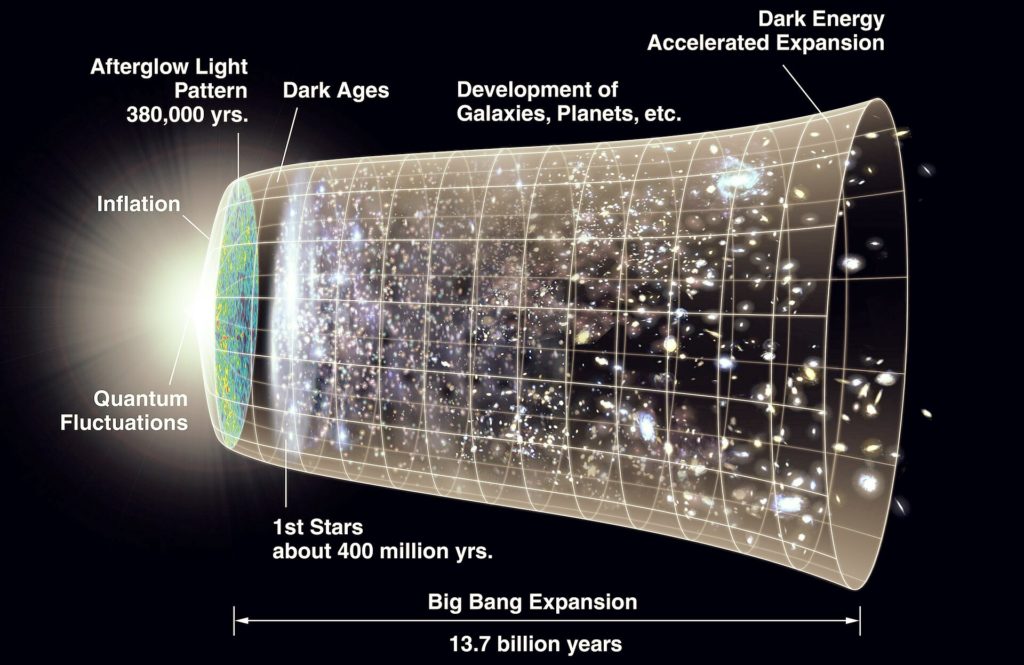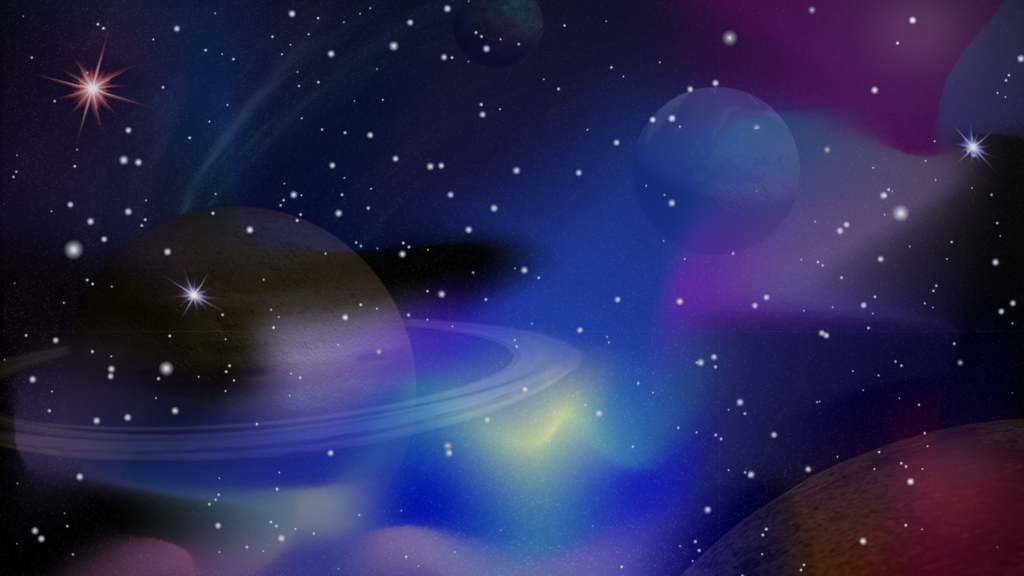It’s a widespread thought the universe is evenly distributed throughout. That’s likely because if our universe did have a center point, that wouldn’t make sense for most of our life. If that were true though, we would notice it all around us.
What’s interesting about this question is how much it makes sense to assume the universe has an exact center point or not have one at all. It depends on your theory. Let’s go through some examples of how two theories might work out!
Theory I – The Universe has an exact center
This is a very well-known theory, the big bang. It suggests that the universe was once a single point before expanding outwards. This theory also works with the idea that our universe has an exact center point. Here’s how this theory could work:

- The Big Bang happened but then released super-massive amounts of radiation, and unbalanced gravity, and I dunno something else. It eventually was able to slow the expansion down so fast that it’s evenly distributed today.
- Due to the effects of time, we can’t see the exact center point because that would take us billions of years into the future. So it’s still there just very far in the future from where we are today.
Read:
Pros: This theory is widely known and accepted as a fact in astrophysics (if you don’t believe me, ask Neil deGrasse Tyson). It works well with proven facts about our universe as well.
Cons: It’s also very reliant on a few assumptions, making it hard to comprehend.
Theory II – The Universe has no exact center point
This is where things get really interesting! Many theories do not just simply accept the big bang as truth but base their big bangs on other theories such as inflation or string theory.
- The universe is all connected through space and time. That means if one event happened in the past, it will eventually happen again in the future. When it comes to our universe though, we can’t see everything that happened before us. We only see what our universe looks like now because of everything that came before us.
- If our universe came out of an explosion, we can’t see the past explosion because that would mean that that very explosion happened in the future. We would have to wait until then with some form of “time travel.”
The entire Universe is not the center of everything, but rather it’s all just part of that one exact center point.
Pros: This theory is incredibly unique because it’s unique, to begin with. With no exact center point, our universe would be a lot different. It might mean we wouldn’t know how the universe began and will eventually end (hence no afterlife).
Cons: This theory is entirely based on assumptions.
Our opinion – Does our universe have an exact center?

In our controversial opinion, the Earth is the center of the Universe. What we mean by this is that the Earth is the only planet in the Universe with life so far, and ours is the only star system with habitable planets circling it. It’s in the habitable zone.
It’s just the only one with life. Common sense suggests that extraterrestrials do exist. But if there was life somewhere else, they should have visited us already. If they have not visited us, they simply do not exist. I am not uncomfortable claiming that the Earth is the center of the Universe, and the rest of the cosmos is secondary.
And talking about the center of the Universe without being philosophical, whether or not the Universe has a center, is a synonym for whether or not the Universe is finite. If it’s finite, there’s a center point. If it’s infinite, there’s no way it can have a center. And if it’s finite, what’s beyond the Universe?
There must be something. But what? It’s not possible to imagine, at least for our human brain.
Conclusion
We are choosing the easy way, to believe that the Universe is infinite. The entire Universe is not the center of everything, but rather it’s all just part of that one exact center point.
- AI-Powered PCs: Overhyped Trend or Emerging Reality? - August 21, 2024
- Princeton’s AI revolutionizes fusion reactor performance - August 7, 2024
- Large language models could revolutionize finance sector within two years - March 27, 2024


